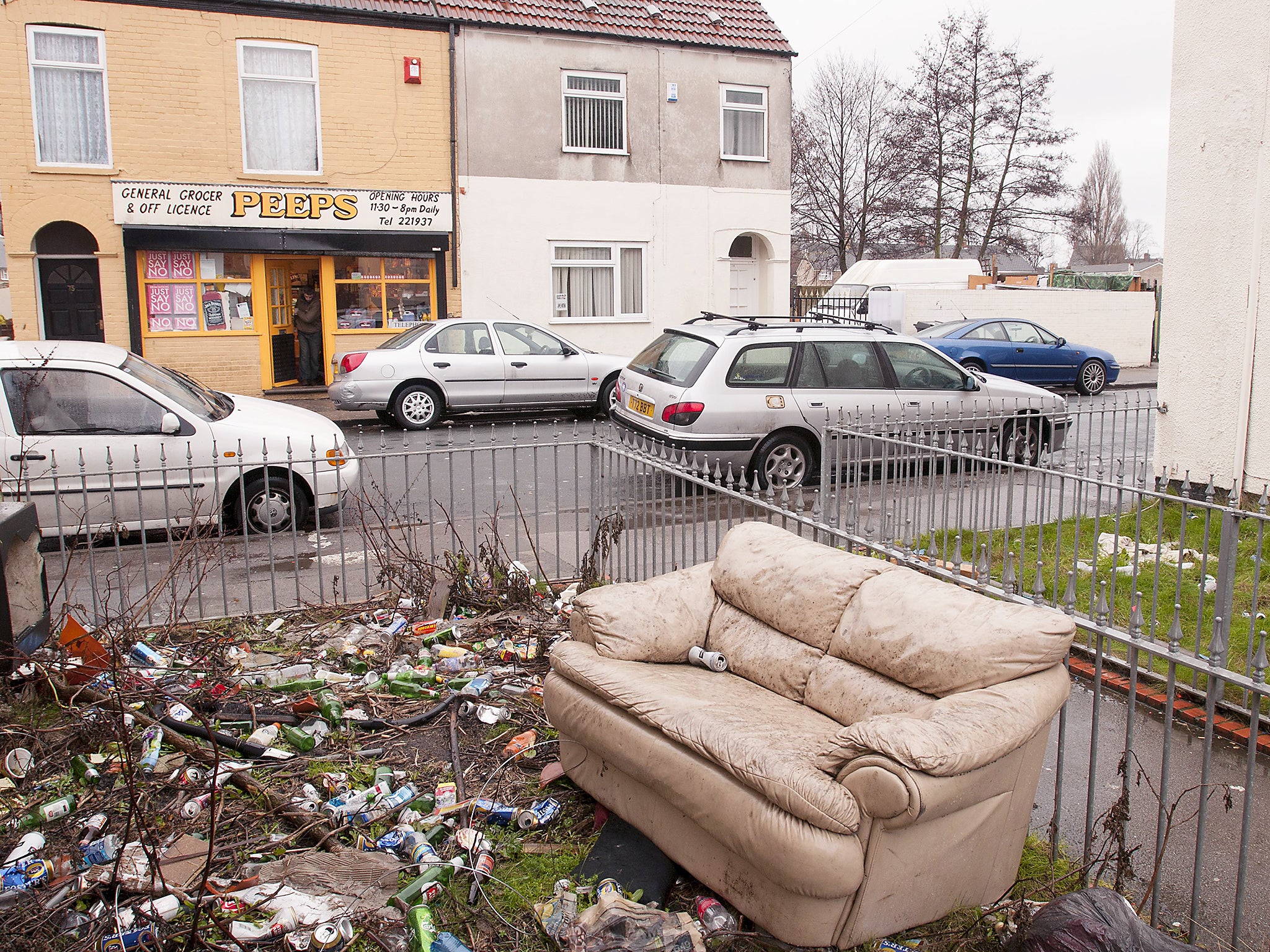Poor Britons have worse health than generation born a century ago, study says
Study suggests that the widening health gap between Britain's rich and poor may be caused by increased income inequality

Your support helps us to tell the story
From reproductive rights to climate change to Big Tech, The Independent is on the ground when the story is developing. Whether it's investigating the financials of Elon Musk's pro-Trump PAC or producing our latest documentary, 'The A Word', which shines a light on the American women fighting for reproductive rights, we know how important it is to parse out the facts from the messaging.
At such a critical moment in US history, we need reporters on the ground. Your donation allows us to keep sending journalists to speak to both sides of the story.
The Independent is trusted by Americans across the entire political spectrum. And unlike many other quality news outlets, we choose not to lock Americans out of our reporting and analysis with paywalls. We believe quality journalism should be available to everyone, paid for by those who can afford it.
Your support makes all the difference.Poor people in Britain now have worse health than those born in the early 1920s, a study has found.
The health gap between the least and most well-off in society is widening and may heap increased pressure on care for vulnerable older people in the future, according to new research from University College London (UCL).
Experts found health inequality among rich and poor women born between 1968 to 1970 was twice that of those born between 1920 and 1922. For men, the gap was one-and-a-half times larger.
The percentage of men in the lowest income bracket who said they had a limiting illness increased from 26 per cent to 36 per cent between these two generations.
The same trend applied to women living in the poorest households. Only 15 per cent of the earlier generation described their health as “not good”, compared to 20 per cent of the later one.
The study suggests these widening health gaps might be due to increased income inequality, in turn leading to greater marginalisation of the poor.
Dr Stephen Jivraj, a professor at UCL's Research Department of Epidemiology and Public Health and the author of the study, said without policy interventions health inequality might widen further.
Dr Jivraj added the results of the study: "point to a greater future demand in healthcare from people who in society who will be least capable of managing their health as they enter ages when [ill health] becomes more common.”
She added: "There is perhaps no more stark indication of the damage that inequality does than the increase in health inequalities.
"As the evidence clearly demonstrates, in countries with high levels of inequality, such as the UK, we see higher levels of poor mental and physical ill health, obesity, drug and alcohol addiction and violent crime.
"We want the government to adopt an inequality reduction strategy across departments, to tackle the scandal of inequality."
Research was based on the responses of more than 200,000 working-age people in England, Wales and Scotland, who rated their overall health and disclosed if they suffered from a limiting long-term illness. Their answers were taken as part of the General Household Survey between 1979 and 2011.
From these surveys, Dr Jivraj created three-year “health snapshots” of the generations born between 1920 and 1970, finding that the gap between the richest and the poorest households has increased over time.
Another reason for the results could be that younger generations have greater expectations of their own health than previous generations.
The study is published in the Journal of Epidemiology and Community Health.
Join our commenting forum
Join thought-provoking conversations, follow other Independent readers and see their replies
Comments